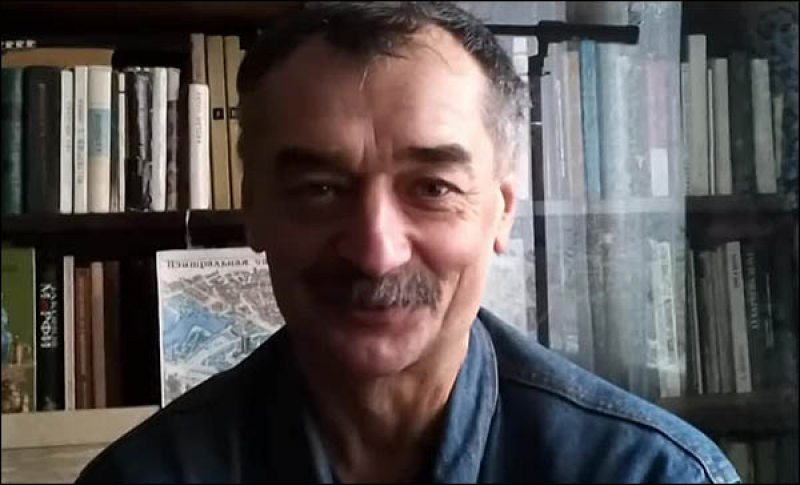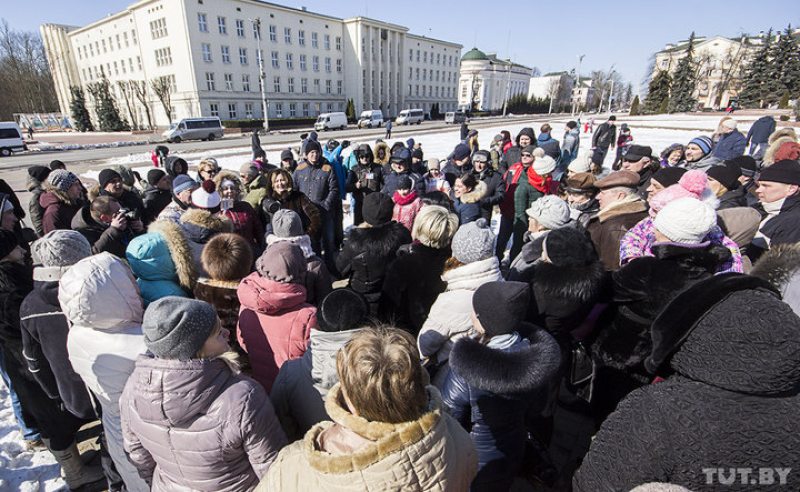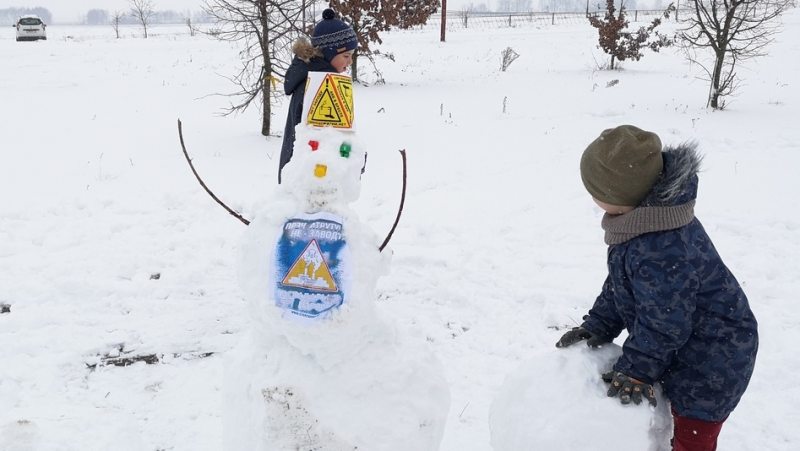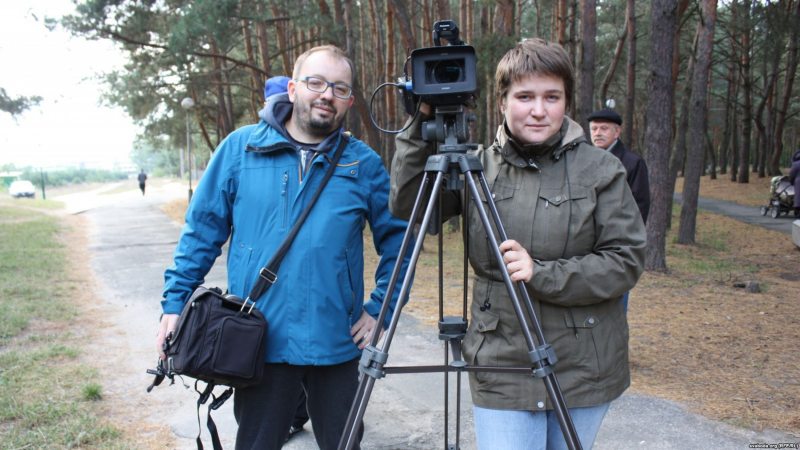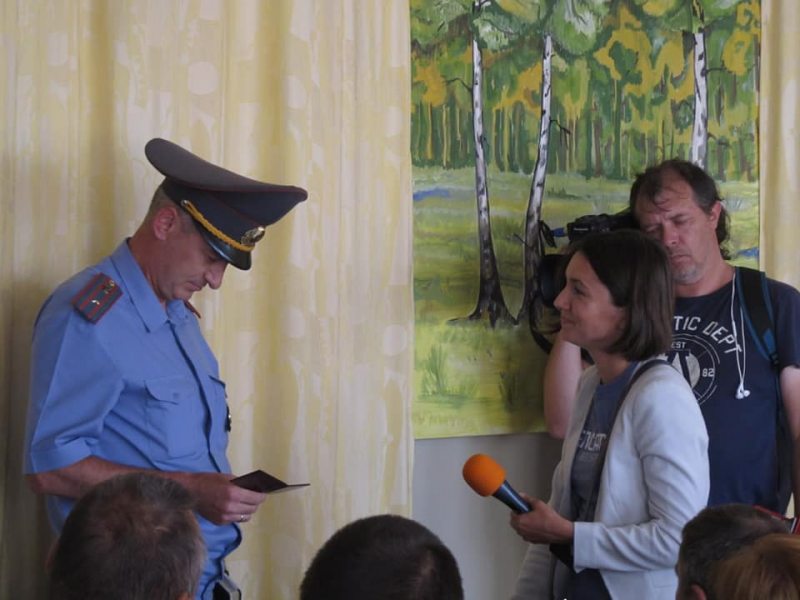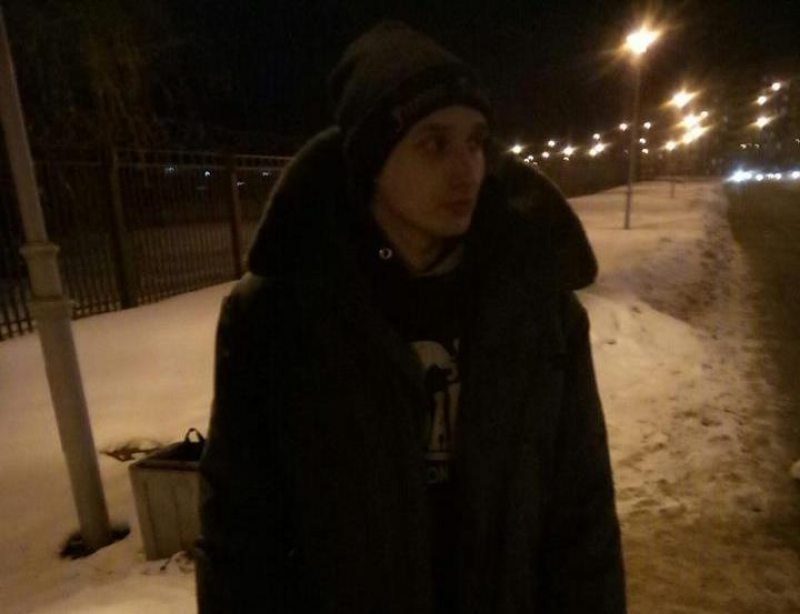Picks of the week
Another cycle of segregation for political prisoner Mikhail Zhamchuzhny
The political prisoner Mikhail Zhamchuzhny is constantly reprimanded in the Horki correctional colony No. 9 by disciplinary segregation or placement in a secure housing unit (SHU). Viasna human rights defenders were informed that from mid-October 2018 to January 2019 Zhamchuzhny spent 35 days in disciplinary segregation and one month in SHU.
According to previous calculations of the prisoner, from October 2017 to October 2018 he spent 270 days in segregation. Apparently, this practice continues until today.
The majority of punishments were inflicted on Mikhail Zhamchuzhny for refusing to return to the block after segregation. The prisoner thus protects himself from provocations against him which could lower his social status among prisoners.
Brest initiative group for holding referendum on car battery factory construction ban refused registration
According to human rights activist Raman Kisliak, the Brest district executive committee refused to register the initiative group for holding a local referendum banning the construction of a car battery factory.
Activists have called for a vote on the proposal "to prohibit any activity related to the construction and operation of the lead-acid batteries manufacturing factory in Brest district."
"This issue cannot be put to a local referendum, as it is significant for the Republic of Belarus in general, and is regulated by legislative acts of the Republic of Belarus," — reads the authorities' response.
Now members of the initiative group have a month to appeal the decision of the district executive committee.
Meanwhile, Brest Newspaper reports that a Brest activist Julija Nichyparuk will be tried on January 30 for building a snowman near the construction site of the car battery factory and putting a protest poster on it. Administrative proceedings under art. 23.34 of the Administrative Code ("Violation of the procedural arrangements of holding mass events") were initiated.
"The police has nothing else to do as to fight with snowmen," – commented Julija Nichyparuk.
Pressure on independent journalists
Four administrative offense reports have been drawn up against independent journalists from Brest Aliaksandr Liauchuk and Milana Kharytonava, naviny.by reports.
They are charged under Art. 22.9 of the Administrative Code — work for foreign media without accreditation. The reports indicate that on 2nd and 30th of December 2018 Liauchuk and Kharytonava were interviewing citizens on Lenin square in Brest, and later posted the materials on the Belsat TV channel website.
According to estimates of Human Rights Center Viasna, Aliaksandr Liauchuk was tried seven times under this article, Milana Kharytonava – six times. The total amount of fines for the family over the past year exceeded $5,000.
The same article is used against another independent journalist from Brest Jauhen Skrabets. His trial is scheduled for February 4. Over the last six months, the journalist has been held administratively liable three times for cooperation with "Radio Racyja." The total amount of fines exceeded $650.
Freelance journalist Volha Chajchyts who is working for the Polish TV channel Belsat was detained on January 21 near the Kurapaty site in Minsk, informs BelaPAN.
At the site of killings of the Stalinist purges victims, the journalist was preparing a report for Belsat, when the traffic police stopped her and accused of violating the legislation on mass media (Art. 22.9 of the Administrative Code).
Arrests for graffiti against police violence
On January 21, Dzmitry Palijenka, Jauhen Chulitski, and Anastasija Huseva were detained in their apartments. The dwellings were searched, the police seized a laptop, several phones, a banner, and some leaflets. Dzmitry Palijenka reported money missing after the search.
The former political prisoner Dzmitry Palijenka and his friends are suspected of drawing graffiti "Cops are killing people" on a wall on December 22 last year (Art. 341 of the Criminal Code of the Republic of Belarus (desecration of buildings and damage of property).
In the evening of January 23, after interrogation, the three activists were released under travel restrictions. Anastasija Huseva reported brutal and inhumane attitude of the police.



